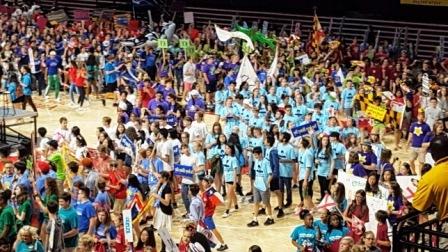By Amanda M. Norton, Adams Papers
On July 1, 2008, the Massachusetts Historical Society launched the Founding Families Digital Editions, the home of the Adams Papers Digital Edition. This resource converted 45 years’ worth of published material, comprising 32 volumes and three generations of Adamses, and made them more accessible than ever with keyword searching, a cumulative index, and hyperlinked cross references on a freely available website. This massive multi-department undertaking took three years, financial support from the National Endowment for the Humanities and Harvard University Press, as well as technical support from Rotunda, the electronic imprint of the University of Virginia Press. Using a defined subset of the Text Encoding Initiative, an XML-based tagging language designed for the digital markup of various kinds of texts in the humanities, the website retains the editorial standards of the original letterpress volumes, while making the presentation more flexible for the digital environment. As originally conceived, this Founding Families project was to house both the Adams Papers and the seven volumes of the Winthrop Family Papers; however, over time, the projects were separated and the Founding Families page was renamed to simply the Adams Papers Digital Edition.
Over the last ten years, the website has only increased in its value to scholars and the public as thirteen more volumes have been made available, additional search and browse features were added, and displays were updated.
This summer we are pleased to announce that to celebrate its tenth anniversary, the Adams Papers Digital Edition has undergone a complete redesign. The all new web platform enhances not only its readability but also its usability, with more tailored search options, the ability to save your most recent search, and a better mobile experience. Last, but certainly not least, the relaunched website benefits from the addition of a new volume, Papers of John Adams, Volume 17. This volume includes a momentous occasion for both the Adamses and the nation—John Adams greeting King George III as the first minister from the newly independent United States. John’s detailed account of this dramatic meeting, written in code to the secretary of foreign affairs, John Jay, is just one highlight from a volume that also includes the first substantial correspondence between Adams and Thomas Jefferson and the beginnings of treaty negotiations with the Barbary States of North Africa.

While some of the Adams Papers volumes are also available on both the National Archives’ Founders Online and Rotunda’s Founding Era sites, only the Adams Papers Digital Edition website includes all of the historical documents and editorial content from all of the digitized volumes in one place; and the Adams Papers Editorial Project with the Massachusetts Historical Society is committed to continuing to expand its digital offerings. Visit our new site at likr.colleensflowercellar.com/publications/adams-papers.










